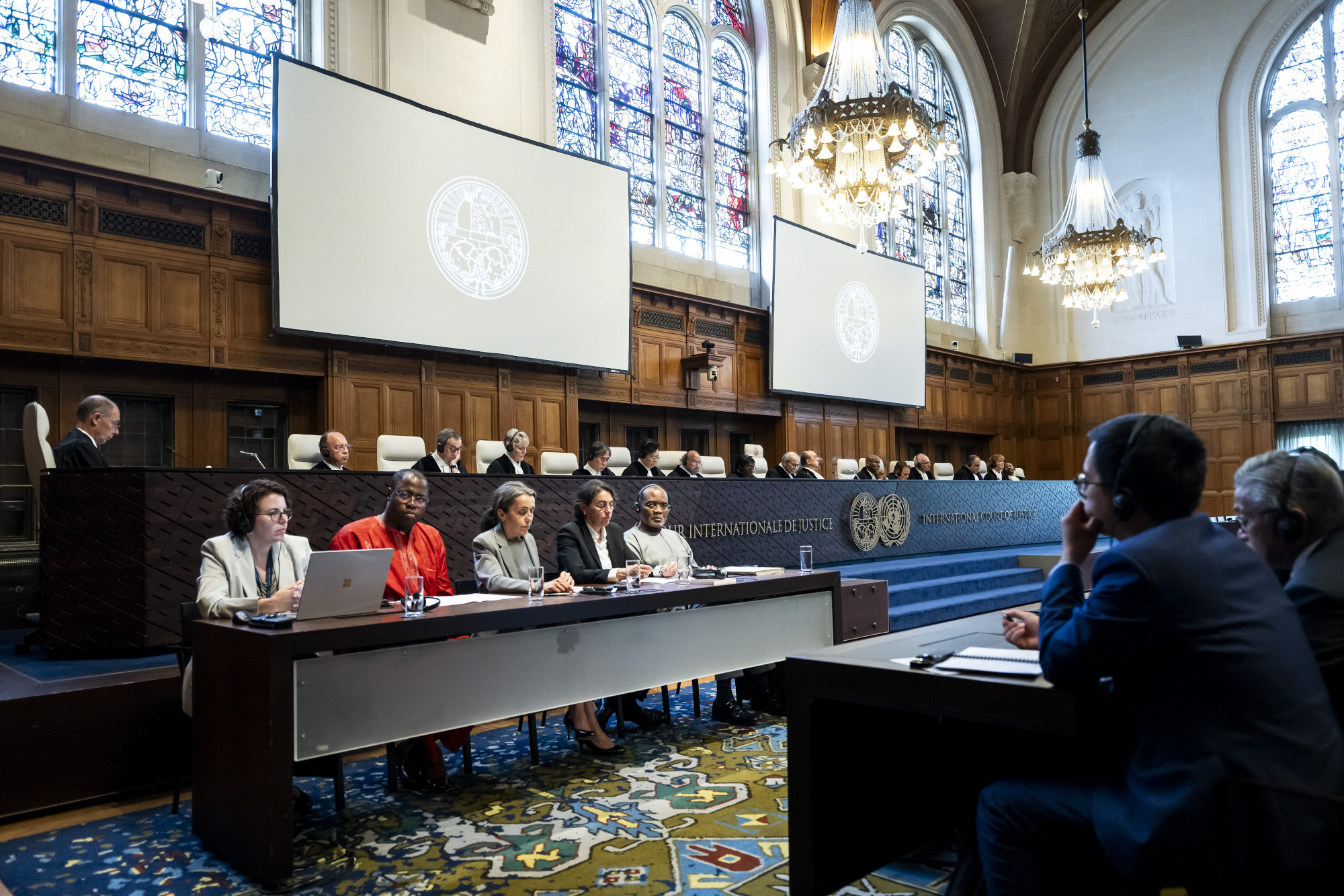ICJ: Israeli occupation of Palestinian territories unlawful and must end ‘as rapidly as possible’

Israel is unlawfully occupying the Palestinian territories of the West Bank, Gaza and East Jerusalem and is obliged under international law to withdraw its forces and dismantle its settlements as rapidly as possible, the International Court of Justice (ICJ) has ruled.
The UN’s top court issued its landmark advisory opinion on Friday following a 2022 request from UN General Assembly and an 18-month process which heard submissions from more than 50 states, including from Ireland’s Attorney General Rossa Fanning SC in February.
It is the ICJ’s first ruling on the Israeli-Palestinian conflict since 2004, when it held that Israel’s controversial construction of a separation wall in the West Bank was in violation of international law — which Israel continues to deny.
The court held by a majority of 11-4 that Israel’s “continued presence in the occupied Palestinian territory is unlawful” and that Israel “is under an obligation to bring to an end its unlawful presence… as rapidly as possible”.
A larger majority of 14-1 agreed that Israel is obliged “to cease immediately all new settlement activities, and to evacuate all settlers from the occupied Palestinian territory” as well as to pay reparations to the Palestinians affected.
Israel’s policies and practices in East Jerusalem and the West Bank are aimed at acquiring sovereignty over an occupied territory, contrary to the prohibition of the use of force in international relations and the principle of the non-acquisition of territory by force, the ICJ said.
The court added that Israel’s security concerns cannot override the principle of the prohibition of the acquisition of territory by force.
It also found that the regime of comprehensive restrictions imposed by Israel on Palestinians in the occupied territories constitutes “systemic discrimination”.
Israel’s unlawful policies and practices are in breach of its obligation to respect the right of the Palestinian people to self-determination, it said.
Tánaiste and foreign affairs minister Micheál Martin said the ICJ opinion “largely confirms the government’s legal analysis — outlined in Ireland’s written and oral submissions, and presented by the Attorney General to the court back in February 2024 — that Israel’s settlement and related policies… amount to illegal annexation”.
“Ireland’s core objective in making submissions in this case was to encourage the court to clarify the rights of the Palestinian people in international law,” he continued.
“This is essential, both to counter increasing misinformation internationally on this point, as well as to ensure that these rights are fully respected in any future settlement of the Israeli-Palestinian conflict.
“It is absolutely clear that there can be no just and lasting solution to the Israeli-Palestinian conflict without respect for international law.
“The court’s authoritative clarification of the legal consequences of Israel’s policies and practices in the occupied Palestinian territory is of fundamental importance in this context.”
Mr Martin added: “I will be engaging with partners — in the EU, across the region, and more widely within the United Nations — to see how we can now bring to bear this authoritative opinion by the court to end to Israel’s illegal presence in [the occupied Palestinian territory], and bring about the full realisation of the right of the Palestinian people to self-determination. “









